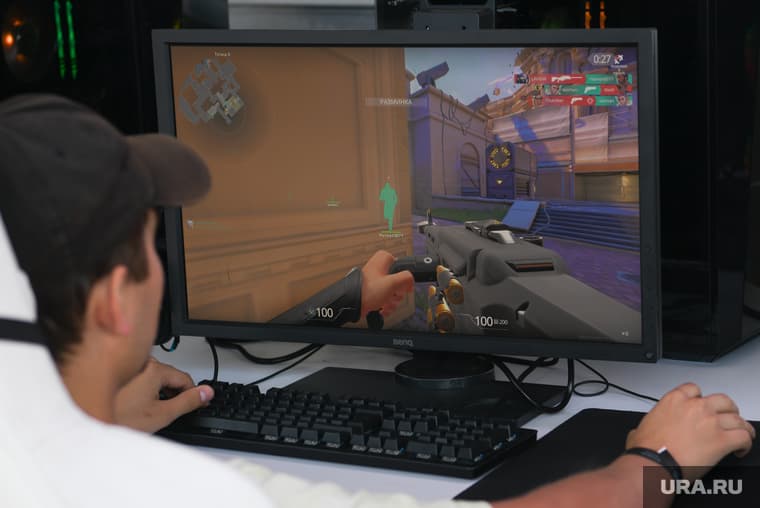In today’s world, where technology is becoming an integral part of our daily lives, the interaction between online games and the social development of people with autism has attracted particular attention. Online games, offering a variety of interactive platforms, can be a key tool in improving the social skills and cognitive abilities of this category of people. In this article, we explore the potential of virtual games to improve the quality of life of people with autism by analyzing their impact on communication, learning and personal development.
Impact on social skills
Online gaming can play an important role in improving the social skills of people with autism by creating unique opportunities for safe and supervised communication. These interactive environments can help overcome some of the barriers that are often encountered in real life.
Creating a safe environment for communication
Communication without physical contact
Virtual games provide an opportunity to interact with others without being physically present, which can significantly reduce stress levels for individuals with autism. This feature of games is particularly valuable because physical proximity can cause discomfort or anxiety for some individuals. For more information on the effects of online gaming, see: https://onlinecasinoohneoasis.io/reviews/hexabet-casino/.

Regulated intensity of communication
The gaming environment allows users to independently control the intensity and duration of communication. This makes it possible to avoid overload and self-regulate interaction according to personal preferences and needs, which contributes to the creation of a comfortable social atmosphere.
Development of social interaction and empathy
Collaborative problem solving
Online games based on teamwork and cooperation can foster important social skills, such as the ability to work together to achieve a common goal. This process teaches participants to understand and consider the opinions and needs of others, which is a key aspect of effective social interaction.
Understanding and expressing emotions
Game characters and scenarios often include demonstrations of a variety of emotions, which provides excellent practice for improving the ability to recognize and understand them. This helps people with autism to better interpret emotional cues in real life, improving their capacity for empathy and interpersonal interaction.
Cognitive development
Online games can significantly improve concentration and attention in children with autism. Games that require quick reactions and speed tasks help to develop the ability to focus for long periods of time on a single task and improve the ability to switch attention between different activities. This is especially important for adaptation in the school environment and social interactions, as it directly affects the success of learning and communication.
In addition, the development of spatial perception and logical thinking through puzzles and strategy games also has a significant impact. These games teach children to analyze situations, plan actions and make informed decisions, which improves both academic and everyday skills. Engaging in such tasks helps to build abstract thinking and the ability to structure information, which is useful in learning and daily tasks.

Examples of positive impact
Examples of the positive impact of online games for people with autism are supported by numerous studies and personal stories demonstrating their important role in therapy and learning. For example, specially designed games for children with autism often include interactive learning elements that stimulate cognitive development and improve social interactions. These games may offer tasks tailored to individual learning differences, which helps them learn new concepts and skills in a more comfortable and motivating environment.
In addition, there are numerous success stories from families whose children with autism have experienced significant improvements in communication skills through the regular use of online games. Parents report that games help children to better express their thoughts and feelings, as well as understand the emotions of others. This not only promotes better communication in the family environment, but also facilitates interaction with peers and teachers, making social life more fulfilling and rich.
Therapeutic use of virtual games
The therapeutic use of online games for people with autism opens up new possibilities for professionals and parents. In this section, we look at how games can be integrated into therapeutic programs:
- Individualized approach: Online games can be adapted to fit the specific therapeutic needs and abilities of the user. For example, games can be customized based on difficulty level, graphics and sound preferences, making them suitable for different degrees of sensitivity and skill development. This allows for a fully personalized therapeutic tool that takes into account each person’s unique characteristics and interests.
- Motivation and attention retention: The engaging and interactive nature of games can significantly improve participation in the therapeutic process. Games offer visual and auditory stimuli that can engage users’ attention more effectively than traditional teaching methods. This is particularly important for children with autism, who may find it difficult to focus on more mundane or monotonous tasks. Games can also include reward and achievement systems to encourage further participation and progress.
- Progress tracking: Modern technology in online games allows for accurate tracking of a user’s progress by analyzing their actions in the game and adapting tasks according to improvements or changes in skills. This gives therapists valuable data on which areas need more work and which techniques are most effective for a particular user.
This approach allows games to be used not only as a means of entertainment, but also as an effective tool in the comprehensive therapy of autism, promoting overall development and adaptation to the social environment.
Conclusions
In conclusion, online games represent a promising tool that can significantly enrich the lives of individuals with autism. Although they are not a panacea and their results may vary depending on the individual characteristics of each person, the benefits they offer in improving social interactions and cognitive development are undeniable. They provide a supportive and stimulating environment where people with autism can safely learn and develop their skills, making online games an important part of a comprehensive approach to autism therapy. Thus, integrating virtual games into therapeutic programs and educational practices may be the key to opening new horizons to improve the quality of life for this unique group of people.